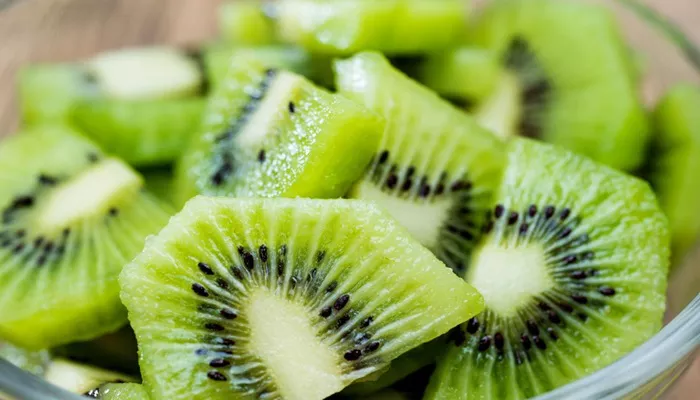Triglycerides, a type of fat found in the blood, play a significant role in heart health. Elevated levels of triglycerides are linked to an increased risk of cardiovascular diseases, including heart attack and stroke. Managing triglyceride levels is crucial for maintaining overall heart health, and diet plays a pivotal role in this process. Among various dietary interventions, fruits are often recommended for their health benefits. This article delves into the relationship between fruits and triglyceride levels, exploring which fruits are particularly effective in fighting high triglycerides and how they contribute to cardiovascular health.
Understanding Triglycerides
Before diving into the benefits of fruits, it’s essential to understand what triglycerides are and why their levels matter.
Triglycerides are a type of lipid (fat) found in the bloodstream. They are formed from excess calories that are not immediately used by the body for energy. When you consume more calories than you burn, the excess is converted into triglycerides and stored in fat cells. Elevated triglyceride levels can contribute to the hardening of the arteries, a condition known as atherosclerosis, which increases the risk of heart disease.
SEE ALSO: How to Get Coronary Artery Disease
The Role of Fruits in Managing Triglycerides
Fruits are rich in essential nutrients, including vitamins, minerals, antioxidants, and dietary fiber. These components can help lower triglyceride levels in several ways:
Fiber Content: Dietary fiber helps reduce the absorption of dietary fats and sugars, leading to lower triglyceride levels.
Fruits high in fiber, such as apples and pears, can help regulate triglyceride levels by promoting a feeling of fullness and reducing overall calorie intake.
Antioxidants: Fruits are abundant in antioxidants, which help reduce oxidative stress and inflammation in the body.
Oxidative stress and inflammation are linked to higher triglyceride levels and cardiovascular disease. Berries, such as blueberries and strawberries, are particularly rich in antioxidants and have been shown to have a positive effect on triglyceride levels.
Natural Sugars: Fruits contain natural sugars that can be a healthier alternative to refined sugars found in processed foods.
Consuming fruits instead of sugary snacks can help prevent spikes in blood sugar levels, which can contribute to high triglyceride levels.
Healthy Fats: Some fruits, such as avocados, contain healthy fats that can help lower bad cholesterol (LDL) and triglyceride levels. These monounsaturated and polyunsaturated fats can improve overall lipid profiles and support heart health.
Top Fruits for Lowering Triglycerides
Avocados
Avocados are a unique fruit that stands out due to their high monounsaturated fat content. These healthy fats can help lower LDL cholesterol and triglyceride levels. Additionally, avocados are rich in potassium, which can help regulate blood pressure and support cardiovascular health.
Berries
Berries, including strawberries, blueberries, raspberries, and blackberries, are packed with antioxidants such as flavonoids and polyphenols. These compounds help reduce oxidative stress and inflammation, contributing to lower triglyceride levels.
Studies have shown that berry consumption can positively impact lipid profiles and support heart health.
Apples
Apples are an excellent source of dietary fiber, particularly soluble fiber known as pectin. Soluble fiber helps reduce the absorption of fats and sugars, leading to lower triglyceride levels. Apples are also rich in antioxidants, which can further support cardiovascular health.
Citrus Fruits
Citrus fruits such as oranges, grapefruits, and lemons are rich in vitamin C and soluble fiber. Vitamin C acts as an antioxidant, reducing oxidative stress and inflammation, while soluble fiber helps manage triglyceride levels. Consuming citrus fruits regularly can contribute to better heart health and lower triglyceride levels.
Kiwi
Kiwi is a nutrient-dense fruit that provides a good amount of vitamin C, dietary fiber, and antioxidants. The high vitamin C content helps reduce oxidative stress, while the fiber helps regulate triglyceride levels. Kiwi’s unique combination of nutrients makes it a valuable addition to a heart-healthy diet.
Pomegranates
Pomegranates are known for their high levels of antioxidants, including punicalagins and anthocyanins. These compounds help reduce oxidative stress and inflammation, which can contribute to lower triglyceride levels. Regular consumption of pomegranate juice or seeds may support cardiovascular health.
Incorporating Fruits Into Your Diet
To effectively manage triglyceride levels, it is important to incorporate a variety of fruits into your daily diet. Here are some tips for doing so:
Choose Whole Fruits: Opt for whole fruits over fruit juices or dried fruits, as whole fruits contain more fiber and fewer added sugars.
Mix and Match: Include a diverse range of fruits to ensure you receive a wide array of nutrients and antioxidants.
Combining fruits in salads, smoothies, or as snacks can help you meet your daily fruit intake goals.
Watch Portions: While fruits are healthy, they still contain natural sugars. Be mindful of portion sizes to avoid excessive calorie intake.
Pair with Other Healthy Foods: Combine fruits with other heart-healthy foods such as nuts, seeds, and whole grains for a balanced diet that supports triglyceride management.
Conclusion
Incorporating fruits into your diet can play a significant role in managing triglyceride levels and supporting overall cardiovascular health. Fruits such as avocados, berries, apples, pears, citrus fruits, kiwi, and pomegranates offer a range of benefits, including high fiber content, antioxidants, and healthy fats. By including these fruits in your diet and maintaining a balanced lifestyle, you can work towards achieving and maintaining optimal triglyceride levels and enhancing heart health.

